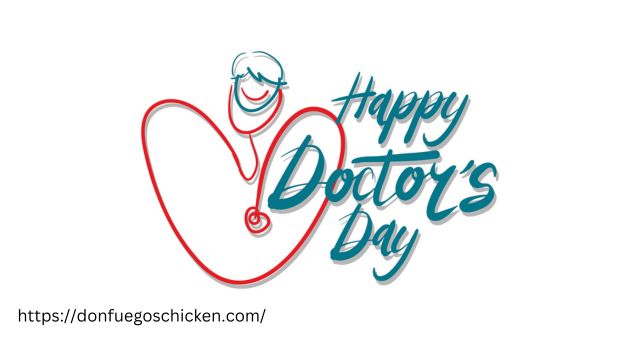Comprehensive Care at Leading Addiction Treatment Centers

Addiction is a complex and deeply personal struggle that impacts millions of individuals and their families every year. Yet, for those seeking lasting recovery, the most reliable pathway is through comprehensive care provided by leading addiction treatment center. Offering a blend of evidence-based approaches, personalized treatment plans, and holistic therapies, these centers are at the forefront of addiction recovery, helping individuals rebuild their lives one step at a time.
This article explores what makes these facilities stand out, highlighting key practices and approaches that contribute to their effectiveness.
Addiction Treatment by the Numbers
Understanding the scale of addiction sheds light on why comprehensive care is so essential. Data from the Substance Abuse and Mental Health Services Administration (SAMHSA) reveals that in 2021 alone, 46.3 million people in the United States aged 12 or older met the criteria for a substance use disorder (SUD). Despite these staggering numbers, only 6.5% of individuals with SUD received specialized treatment that year.
Why do so many people fall through the cracks? Key barriers include stigma, financial constraints, and a lack of access to quality care. It is precisely these gaps that leading addiction treatment centers aim to address, with their wide-ranging services tailored to meet the diverse needs of those battling substance dependence.
What Sets Leading Treatment Centers Apart?
Not all addiction treatment centers are created equal. Industry leaders distinguish themselves through their commitment to high-quality, patient-centered care. Below are the defining attributes that elevate them above standard facilities.
1. Evidence-Based Treatment Models
Effective addiction treatment begins with science. Leading centers prioritize evidence-based practices, integrating proven methods such as:
- Cognitive Behavioral Therapy (CBT): Focuses on identifying and managing the thoughts and behaviors that drive substance use.
- Medication-Assisted Treatment (MAT): Combines FDA-approved medications (like methadone, buprenorphine, or naltrexone) with counseling to address more severe addictions, such as opioid dependency.
- Motivational Interviewing (MI): A therapeutic approach designed to spark motivation and empowerment, particularly for those ambivalent about recovery.
These methods are backed by decades of research and are customized based on each patient’s condition, history, and goals.
2. Personalized Recovery Plans
Addiction doesn’t impact everyone in the same way. Factors like genetics, socioeconomic status, personal traumas, and co-occurring mental health disorders all contribute to how individuals experience substance abuse. To combat this, top-tier treatment centers develop personalized recovery plans.
Using intake assessments and diagnostic tools, professionals craft tailored strategies that may include individual and group therapies, support groups such as Alcoholics Anonymous (AA), and trauma-informed counseling. This personalized approach ensures that no individual feels overlooked or out of place during their recovery journey.
3. Dual Diagnosis Support
A significant number of people suffering from addiction also grapple with mental health challenges like anxiety, depression, or PTSD—a condition known as co-occurring disorders or dual diagnosis. According to the National Institute on Drug Abuse (NIDA), nearly 50% of individuals with a substance use disorder also suffer from a coexisting mental health issue.
This duality underscores the importance of addressing addiction and mental health concurrently. Leading treatment centers provide integrated care for dual diagnosis cases, offering psychiatric evaluations, medication management, and therapy sessions that target both the mind and body.
4. Holistic Therapies and Wellness Programs
Recovery involves more than merely abstaining from substances—it’s about achieving balance and healing on a deeper level. Many treatment centers now incorporate holistic therapies into their care model, recognizing that physical, emotional, and spiritual dimensions of health are interconnected.
Popular holistic options include:
- Yoga and mindfulness meditation for stress relief.
- Art or music therapy to promote self-expression.
- Nutritional counseling to restore physical health and energy levels.
- Outdoor activities and exercise programs to foster physical fitness and psychological resilience.
These therapies complement traditional approaches, offering patients a well-rounded healing experience while simultaneously reducing the risk of relapse.
5. Family-Focused Support
Addiction doesn’t just affect the individual—it ripples outward, impacting loved ones and familial relationships. Recognizing this, leading centers offer family therapy and education programs. By involving families in the recovery process, these programs aim to rebuild trust, improve communication, and create a supportive home environment for the individual in recovery.
Research from the National Center for Biotechnology Information (NCBI) indicates that patients who receive family-based interventions have higher rates of sustained recovery compared to those who don’t.
6. Aftercare and Long-Term Support
Recovery is an ongoing process that doesn’t end after discharge. Unfortunately, relapse remains a significant challenge, with studies showing that 40-60% of individuals recovering from substance use disorders experience relapse at some point.
To combat this, leading treatment centers emphasize aftercare, providing continued support through:
- Sober living arrangements: Structured environments that promote accountability during early recovery.
- Alumni programs: Networking opportunities for individuals who’ve completed treatment to stay connected to a supportive community.
- Access to counselors and support groups: Regular check-ins and group meetings that help individuals stay motivated.
By extending care beyond the confines of the treatment center, these programs lay the groundwork for sustained recovery and long-term success.
The Power of Compassionate Care
What truly makes leading addiction treatment centers so effective is their emphasis on compassion. From the first phone call to post-treatment follow-ups, these centers work tirelessly to ensure that every individual feels valued, understood, and cared for—regardless of where they are in their recovery journey.
Staff members aren’t just professionals—they are often people with lived experiences of addiction or recovery themselves. This empathy allows patients to feel deeply supported, even during their most vulnerable moments.
Final Thoughts
The road to recovery from addiction is rarely straight or easy, but with the right support system, it’s a challenge that can be overcome. Leading addiction treatment centers offer individuals a fighting chance at a healthier, more fulfilling life by delivering the comprehensive care they need to address the root causes of their substance use.
If you or someone you know is struggling with addiction, reaching out to a trusted treatment center is a vital first step toward healing. Because recovery is about more than just surviving—it’s about thriving in a newly reclaimed life.











